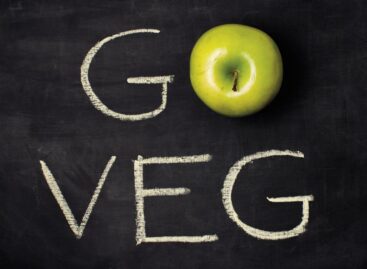Despite the price cap, sour cream, beer and eggs are cheaper even in Germany than here
According to the data of the German Federal Statistical Office (Destatis), the August inflation rate in Germany was 7.9%, which means that the rate of monetary deterioration continued to rise, having been above 7% throughout the last 6 months. In particular, energy and food prices (+16.6%) drive monetary deterioration. After the prices in England and the United States, the Money Center examined how much everyday consumer goods cost in stores in Germany: the result is more than surprising.
High food and energy prices and the continuous aggravation of supply chain problems meant that inflation did not escape even the world’s strongest economies. Among others, the United Kingdom is also feeling the rise in prices, the 9.4% value in June broke a decades-old record, although it slowed down to 9.9% by August. In the United States, the price increase was 8.3% in August. In the case of food, the situation is even worse everywhere.
In Hungary, food prices rose the steepest in August, within which, according to the KSH, margarine (by 66.9 percent), bread (by 64.3 percent), cheese (by 61 percent), dry pasta (by 57.9 percent), dairy products (54.7 percent), butter and butter cream (54.5 percent), pastries (45.4 percent), eggs (42 percent), rice (40.9 percent), poultry and confectionery flour products ( by 40.4 percent) became more expensive. The price of seasonal foods (potatoes, fresh vegetables, fruit) increased by 15.9 percent below average. Chocolate and cocoa went up by 17.1 percent, sugar by 9.3 percent, and cooking oil by 5 percent.
Related news
Less meat might be consumed in German-speaking countries
🎧 Hallgasd a cikket: Lejátszás Szünet Folytatás Leállítás Nyelv: Auto…
Read more >Every second German drinks plant-based
🎧 Hallgasd a cikket: Lejátszás Szünet Folytatás Leállítás Nyelv: Auto…
Read more >Lidl is building a new administrative and logistics centre in Straubing
🎧 Hallgasd a cikket: Lejátszás Szünet Folytatás Leállítás Nyelv: Auto…
Read more >Related news
How does the forint exchange rate affect consumer prices?
🎧 Hallgasd a cikket: Lejátszás Szünet Folytatás Leállítás Nyelv: Auto…
Read more >Two million people have already voted, so 57 million forints will be given to locals in 125 settlements, courtesy of Tesco
🎧 Hallgasd a cikket: Lejátszás Szünet Folytatás Leállítás Nyelv: Auto…
Read more >








